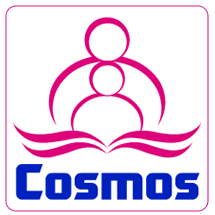Role of Teacher in Promoting Activity Based Learning among Students at Secondary Level
Role of Teacher in Promoting Activity Based Learning
Keywords:
Role of Teacher, Activity based learning, Secondary LevelAbstract
This study was conducted to determine teachers' role in promoting activity-based learning among students at the secondary level. The current study was quantitative in nature. Descriptive research was used to conduct the study and a survey method was conducted for data collection. The population of the study consisted of all the secondary school teachers of district Kotli AJ&K. Simple random sampling technique was used for the selection of the sample. A five-point Likert scale questionnaire was used as a tool in this study. The researcher applied frequency, percentage, mean, and standard deviation to analyze data. It is concluded that teachers think that students can better learn through dramatic techniques in the classroom and students improve their verbal and non-verbal skills through dramatization techniques. Moreover, teachers practice these techniques in the classroom to promote activity-based learning. It is concluded that teachers perceived that group discussion is an excellent technique for enhancing the learning of students and for better learning, also group discussion provides equal opportunities to participate. It is recommended that teacher may use different techniques in the classroom. Students learn more with different techniques. Furthermore, these techniques improve their student’s communication skills.
Downloads
References
Ali, W. G. M., & El Sebai, N. A. M. (2010). Effect of problem-based learning on nursing
students’ approaches to learning and their self-directed learning abilities. International Journal of Academic Research, 2(4), 188-195.
Alfieri, L., Brooks, P. J., Aldrich, N. J., &Tenenbaum, H. R. (2011). Does discovery-based
instruction enhance learning? Journal of educational psychology, 103(1), 1-12.
Akerson, V. L., Abd‐El‐Khalick, F., & Lederman, N. G. (2000). Influence of a reflective explicit
activity‐based approach on elementary teachers' conceptions of nature of science. Journal of Research in Science Teaching: The Official Journal of the National Association for Research in Science Teaching, 37(4), 295-317.
Anwer, F. (2019). Activity-Based Teaching, Student Motivation and Academic Achievement.
Journal of Education and Educational Development, 6(1), 154-170.
Barth, M., Godemann, J., Rieckmann, M., & Stoltenberg, U. (2007). Developing key competencies for sustainable development in higher education. International Journal of sustainability in higher education.
Balme, C. B. (2014). The theatrical public sphere. Cambridge University Press.
Belland, B. R., Kim, C., &Hannafin, M. J. (2013). A framework for designing scaffolds that
improve motivation and cognition. Educational psychologist, 48(4), 243-270.
Castronova, J. A. (2002). Discovery learning for the 21st century: What is it and how does it
compare to traditional learning in effectiveness in the 21st century. Action research exchange,
(1), 1-12.
Chauca, M., Phun, Y., Curro, O., Chauca, C., Yallico, R., &Quispe, V. (2021). Disruptive
innovation in active activity-based learning methodologies through digital transformation. International Journal of Information and Education Technology, 11(4), 200-204.
Cranton, P. (2002). Teaching for transformation. New directions for adult and continuing
education, 93(3), 63-72.
Evans, N. (2012). Destroying collaboration and knowledge sharing in the workplace: a reverse
brainstorming approach. Knowledge Management Research & Practice, 10(2), 175-187. Dunbar, K. (2017). Problem solving. A companion to cognitive science, 23(2)289-298.
Festus, A. B. (2013). Activity-based learning strategies in the mathematics classrooms. Journal of
Education and Practice, 4(13), 8-14.
Felder, R. M., Woods, D. R., Stice, J. E., &Rugarcia, A. (2000). The future of engineering
education: Part 2. Teaching methods that work. Chemical engineering education, 34(1), 26-39.
Foshay, R., &Kirkley, J. (2003). Principles for teaching problem solving. Technical paper, 4(1),
-16.
Goda, Yoshiko, Masanori Yamada, Hideya Matsukawa, KojiroHata, and SeisukeYasunami. "Conversation with a chatbot before an online EFL group discussion and the effects on
critical thinking." The Journal of Information and Systems in Education 13(1), 1-7.
Godwin-Jones, R. (2014). Games in language learning: Opportunities and challenges. London: Routledge.
Hakkarainen, P. (2006). Learning and development in play. Nordic childhoods and early
education, 34(4)183-222.
Herrington, J., Oliver, R., & Reeves, T. C. (2003). Patterns of engagement in authentic online
learning environments. Australasian Journal of Educational Technology, 19(1), 234-241.
Hiratsuka, T. (2016). Actualizing Exploratory Practice (EP) principles with team teachers in
Japan. System, 57(5), 109-119.
Hofstein, A., & Lunetta, V. N. (2004). The laboratory in science education: Foundations for the
twenty‐first century. Science education, 88(1), 28-54.
Jordan, M. I., & Mitchell, T. M. (2015). Machine learning: Trends, perspectives, and prospects.
Science, 349(6245), 255-260.
Kayi, H. (2006). Teaching speaking: Activities to promote speaking in a second language. The
internet TESL journal, 12(11), 1-6.
Kiili, K. (2005). Digital game-based learning: Towards an experiential gaming model. The
Internet and higher education, 8(1), 13-24.
Kochoska, J. (2015). The Role of Dramatization in Acquiring Life Skills Among Students.
Horizons, International Scientific Journal/Series A, Social Sciences and Humanities, 17(3), 344-358.
Kuhn, D. (2010). Teaching and learning science as argument. Science Education, 94(5), 810-824.
Lier, L. V. (2007). Action-based teaching, autonomy and identity. International Journal of
Innovation in Language Learning and Teaching, 1(1), 46-65.
Lo, J. T. Y. (2012). Curriculum changes and their implications for the development of
citizenship: A comparative study of the primary social education curricula in Hong Kong and Shanghai. Chinese Education & Society, 45(2), 75-95.
Nikolopoulou, K. (2018). Creativity and ICT: Theoretical approaches and perspectives in school
education. Research on e-Learning and ICT in Education: Technological, Pedagogical and Instructional Perspectives, 23(2), 87-100.
Papadopoulos, I. (2014). The dramatization of children literature books for the development of
the second/foreign language: An implementation of a drama-based project to students of primary school. Study in English Language Teaching.
Pang, K. (2010). Creating stimulating learning and thinking using new models of activity-based
learning and metacognitive-based activities. Journal of College Teaching & Learning (TLC),7(4), 21-35.
Peter, E. E. (2012). Critical thinking: Essence for teaching mathematics and mathematics
problem solving skills. African Journal of Mathematics and Computer Science Research, 5(3), 39-43.
Pritchard, A. (2017). Ways of learning: Learning theories for the classroom. Routledge.
Randi, J., & Corno, L. (2000). Teacher innovations in self-regulated learning. Handbook of self
regulation, 25(4), 651-685.
Rosas, R., Nussbaum, M., Cumsille, P., Marianov, V., Correa, M., Flores, P., ...& Salinas, M.
(2003). Beyond Nintendo: design and assessment of educational video games for first and second grade students. Computers & Education, 40(1), 71-94.
Scrivener, J. (2005). Learning teaching (Vol. 2). Oxford: Macmillan.
Siegle, D., &McCoach, D. B. (2005). Making a difference: Motivating gifted students who are
not achieving. Teaching exceptional children, 38(1), 22-27.
Singal, N., Pedder, D., Malathy, D., Shanmugam, M., Manickavasagam, S., &Govindarasan, M.
(2018). Insights from within activity-based learning (ABL) classrooms in Tamil Nadu, India: Teacher’s perspectives and practices. International Journal of Educational Development, 60(4), 165-171.
Singh, J., Steele, K., & Singh, L. (2021). Combining the best of online and face-to-face learning:
Hybrid and blended learning approach for COVID-19, post vaccine, & post-pandemic world. Journal of Educational Technology Systems, 50(2), 140-171.
Tsatsaroni, A., Ravanis, K., & Falaga, A. (2005). Studying the recontextualization of science in
pre-school classrooms: Drawing on Bernstein’s insights into teaching and learning practices. International Journal of Science and Mathematics Education, 1(3), 385-417.
Walmsley, B. (2013). “A big part of my life”: a qualitative study of the impact of theatre. Arts
marketing: an international journal, 3(1), 73-87.
Westheimer, J., &Kahne, J. (2004). What kind of citizen? The politics of educating for
democracy. American educational research journal, 41(2), 237-269.
Wright, G. B. (2011). Student-centered learning in higher education. International journal of
teaching and learning in higher education, 23(1), 92-97.
Zacharia, B., Pai, P. K., & Paul, M. (2021). Focus group discussion as a tool to assess patient
based outcomes, practical tips for conducting focus group discussion for medical students learning with an example. Journal of Patient Experience, 8, (2), 374-37388.
Zainuddin, Z., Shujahat, M., Haruna, H., & Chu, S. K. W. (2020). The role of gamified e-quizzes
on student learning and engagement: An interactive gamification solution for a formative assessment system. Computers & Education, 145(5), 103-129.
Downloads
Published
How to Cite
Issue
Section
License
This is an Open Access article distributed under the term of the Creative Commons Attribution 4.0 International licenses permitting all use, distribution and reproduction in any medium provided the work is properly cited.

























